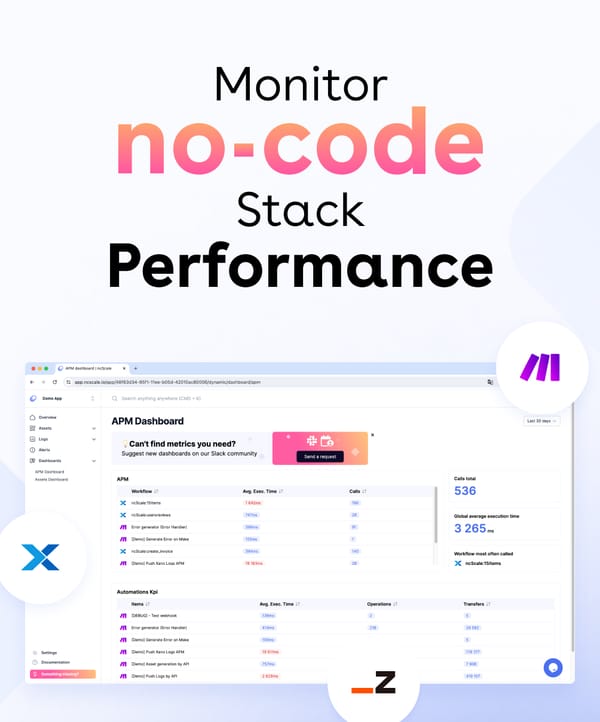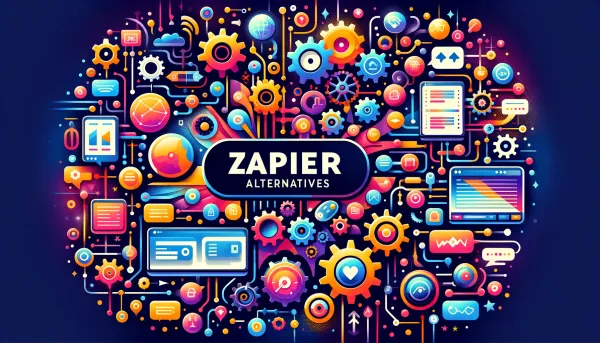Nerdheadz
NERDHEADZ is a team of highly skilled professionals helping small and medium-sized businesses create top-tier web and mobile applications at relatively lower costs by using no-code app builders. All the applications we built are protected with the Flusk Vault, but here we share the common issues we face daily.
Introduction
In an era marked by widespread accessibility to cameras, videos, and powerful data-harvesting software, the need for robust laws and rules governing app privacy and security has become paramount.
As technological advancements empower both technical and non-technical individuals to capture and share personal information, it has become imperative to strike a delicate balance between promoting innovation and safeguarding user privacy.
This article explores the evolving landscape of app privacy and no-code app security issues, delving into Nerdheadz’s motivations for the implementation of data security measures in our client’s Bubble.io mobile and web applications.
Some Common App Privacy Rules Your Bubble.io App Must Comply With.
There are several app privacy rules and best practices that should be followed to protect user privacy and ensure compliance in your no-code app.
While specific rules vary based on the jurisdiction of operation and the type of data being handled, here are some common app privacy rules that are generally important for your no-code web and mobile apps:
Data Minimization:
Rules in this category explicitly state that you must collect and store only the necessary data required for the intended purpose.
Minimizing the collection and retention of personal information is necessary to reduce privacy risks.
Consent and Notice:
This requires that you obtain explicit and informed consent from users of your no-code app before collecting and processing their personal data.
You must also provide clear and easily understandable privacy notices that inform users about the type of data being collected from them, how you intend to use it, and any third parties that will be involved.
Security Measures:
These laws require that you implement appropriate security measures to protect user data from unauthorized access, disclosure, or alteration.
This includes services like encryption, access controls, and regular security assessments to identify and address vulnerabilities.
User Rights:
These laws focus on respecting user rights concerning their personal data and providing mechanisms in your no-code Bubble.io app for users to access, rectify, and delete their data.
You are required, as a rule, to enable users to opt out of data sharing or data processing activities and you must honour their choices as far as these data are concerned.
Third-Party Integrations:
When using third-party services or integrations within your app, ensure that these services also comply with app privacy rules and protect user data.
Conduct due diligence on the data practices and security measures of these third parties.
Others include, but are not limited to data transfer laws, which focus on rules that apply to cross-border data transfers, privacy by design that requires app privacy to be a core principle implemented in your no-code web & mobile app design and the standard requirement to conduct regular app and software audits.
Common Data Protection Laws
General Data Protection Regulation (GDPR):
GDPR is a crucial privacy rule that applies to the processing of personal data of individuals in the European Union (EU).
Children's Online Privacy Protection Act (COPPA):
COPPA is a privacy law in the United States that applies to the collection of personal information from children under the age of 13.
It imposes requirements for obtaining parental consent, providing clear app privacy policies, and ensuring the security of children's personal information.
Personal Information Protection and Electronic Documents Act (PIPEDA):
PIPEDA is a privacy law in Canada that governs the collection, use, and disclosure of personal information by private sector organizations.
It sets requirements for obtaining consent, providing access to personal information, and safeguarding data. Compliance with PIPEDA is necessary when dealing with the personal information of Canadian residents.
Others include, but are not limited to the Health Insurance Portability and Accountability Act (HIPAA) and the California Consumer Privacy Act (CCPA).
Common Security Issues Your Bubble.io Web & Mobile App Might Experience
Instances of intentional leakage or deliberate provision of user data to nefarious users or data thieves are relatively uncommon.
However, certain factors can inadvertently expose your no-code app user data to unauthorized individuals. These factors include:
- API Exposure
- Sensitive Data in Page Loads
- Sensitive Data in Searches
- Test Version Availability
These vulnerabilities, if left unaddressed, can potentially compromise the confidentiality and privacy of user data on your no-code apps.
What’s API Exposure?
API exposure refers to the situation where the APIs (Application Programming Interfaces) used in your no-code Bubble.io application are not properly secured, leading to potential security vulnerabilities and privacy breaches.
A few factors can contribute to API exposure in your no-code Bubble.io app such as:
Lack of Authentication in APIs:
When an API is not properly authenticated, it means that anyone can access it without proper authorization.
This can result in unauthorized users gaining access to sensitive data on your Bubble.io app or gaining the flexibility to perform actions they shouldn't be able to perform.
Insufficient Authorization Controls:
Even if APIs require authentication, it's essential to enforce proper authorization controls to restrict access to specific resources or functionalities within your no-code Bubble.io application.
Without proper authorization, unauthorized users will be able to access sensitive data in your Bubble.io app or perform unauthorized actions.
How Nerdheadz Mitigates These Risks
Nerdheadz implements strong authentication mechanisms, such as API keys, tokens, or OAuth, to help ensure that only authorized users or applications can access the APIs.
Nerdheadz also implements role-based access controls (RBAC) or attribute-based access controls (ABAC) to ensure that users or applications have appropriate permissions and can only access the resources they are authorized to access on the Bubble.io apps.
Regular security testing, monitoring, and staying updated with security best practices are also Nerdheadz’s standard practices to identify and address any potential vulnerabilities or weaknesses in the implementation of APIs to Bubble.io apps.
Sensitive Data In Page Loads
When sensitive data is loaded directly on your Bubble.io no-code web pages without proper safeguards, it can compromise app users’ privacy in several ways.
Here are a few ways your app user’s privacy can be compromised by sensitive data in page loads:
Data Interception:
When sensitive data, such as personally identifiable information (PII), financial details, or confidential information, is transmitted and displayed on a no-code web page without proper privacy or page load rules, it becomes susceptible to interception.
Malicious actors can capture the data while it is in transit between the server and the user's browser.
This interception leads to data breaches and unauthorized access to sensitive information, compromising app user privacy.
Man-in-the-Middle Attacks:
In cases where sensitive data is loaded without proper encryption, it becomes easier for attackers to perform man-in-the-middle attacks.
Attackers intercept the communication between your user's browser and the server, allowing them to view or modify the sensitive data being transmitted.
This can result in unauthorized access to sensitive information and compromise user privacy.
Unintentional Data Leakage:
When sensitive data is included in page loads, it can inadvertently be exposed to unintended recipients.
This can occur when developers or administrators overlook the inclusion of sensitive data in logs, error messages, or response headers.
Unauthorized individuals or automated scanning tools may access this information, leading to privacy breaches.
How Nerdheadz Mitigates These Vulnerabilities
Only retrieving and presenting the necessary information to users, reduces the risk of exposing unnecessary data that could be targeted by attackers.
We implement strict access controls to ensure that only authorized users have permission to access sensitive data in page loads through the use of authentication mechanisms, role-based access controls (RBAC), and user permissions to limit data access based on user roles and responsibilities.
We focus on robust input validation mechanisms to prevent malicious input from being injected into page loads.
Our standard app security protocols follow secure coding best practices while developing our Bubble.io no-code projects.
This includes using secure building and collaboration frameworks, sanitizing user inputs, and regularly updating and patching the underlying software stack.
Sensitive Data in Searches
Your Bubble.io app privacy and security can be compromised by sensitive data in searches and search logs in multiple ways.
Here are some instances where these can occur:
Data Retention and Sharing:
Search engines and service providers may retain and share user search data with third parties for various purposes, such as targeted advertising or analytics.
If proper anonymization or data protection measures are not set in place in your Bubble.io app, there is a risk that sensitive information contained in internal app search queries could be disclosed to unintended recipients, thus compromising your app user’s privacy.
How Nerdheadz Mitigates These Risks
To mitigate the privacy risks associated with sensitive data in searches, it is important for search engine providers and Bubble.io application developers to implement strong privacy practices.
One of Nerdheadz's standard practices is to ensure secure storage and limited retention of search, providing clear privacy policies and controls for personalized search features.
Test Version Availability.
Understanding the risks involved with making your no-code app’s test version publicly available is crucial to safeguarding app user privacy, especially since a few loopholes for data breach during the testing phase of software development can occur, such as:
Inadequate Data Protection:
Your no-code app’s test version may contain real user data for testing purposes.
If proper data protection measures are not in place, such as anonymization or encryption, this sensitive information can be at risk of unauthorized access.
If test versions are accessible by unauthorized individuals, they may gain access to personally identifiable information (PII), financial details, or other sensitive data.
Lack of Access Controls:
Test versions of applications might have relaxed access controls compared to production environments.
If proper access controls are not implemented, unauthorized individuals or insiders may gain access to the test version of Bubble.io apps and the sensitive data it contains.
This can lead to privacy breaches, data leaks, or unauthorized use of the data.
Insufficient Security Testing:
Your Bubble.io app test versions may not undergo rigorous security testing, making them vulnerable to attacks or exploitation.
If the test version has security vulnerabilities, it can be exploited to gain unauthorized access to sensitive information or compromise the privacy of user data.
Misconfiguration or Improper Handling:
Test versions that are misconfigured or improperly handled can lead to privacy issues.
For example, if test environments of your Bubble.io app are mistakenly accessible to the public or if sensitive data is not properly secured during testing, it can result in unauthorized access or exposure to private information.
How Nerdheadz Mitigates These Vulnerabilities
We implement strict access controls and ensure that only authorized individuals or teams have access to the test versions of our client’s Bubble.io apps.
We also use role-based access controls (RBAC) to limit privileges and restrict access to sensitive data.
Another strategy we use is to replace sensitive or personally identifiable information (PII) with dummy or anonymized data in the test versions of our Bubble.io projects.
This reduces the risk of exposing real user data during testing and minimizes the data leak impact if unauthorized access occurs.
We also set up a separate and secure test environment for our clients with appropriate network segmentation and firewall configurations.
These test environments are designed to closely resemble the production environment in terms of security measures to help us identify and address vulnerabilities effectively.
Conclusion
Recognizing the dual nature of user data, where the responsible utilization within Bubble.io apps improves user experiences while mishandling personal information can result in significant repercussions,
Nerdheadz has joined forces with Flusk to mitigate these risks for our clients.
This collaboration is driven by our commitment to strike a harmonious balance between privacy regulations and the constantly evolving digital landscape.
Together, we continue to avert possible Bubble.io app security challenges faced by our clients while proactively exploring new avenues to safeguard their user privacy within their no-code Bubble.io apps ecosystem.
If you enjoyed this post, join our community of no-code founders for free.
We are the world's largest no-code community. Helping founders and businesses grow faster with the power of no-code.












